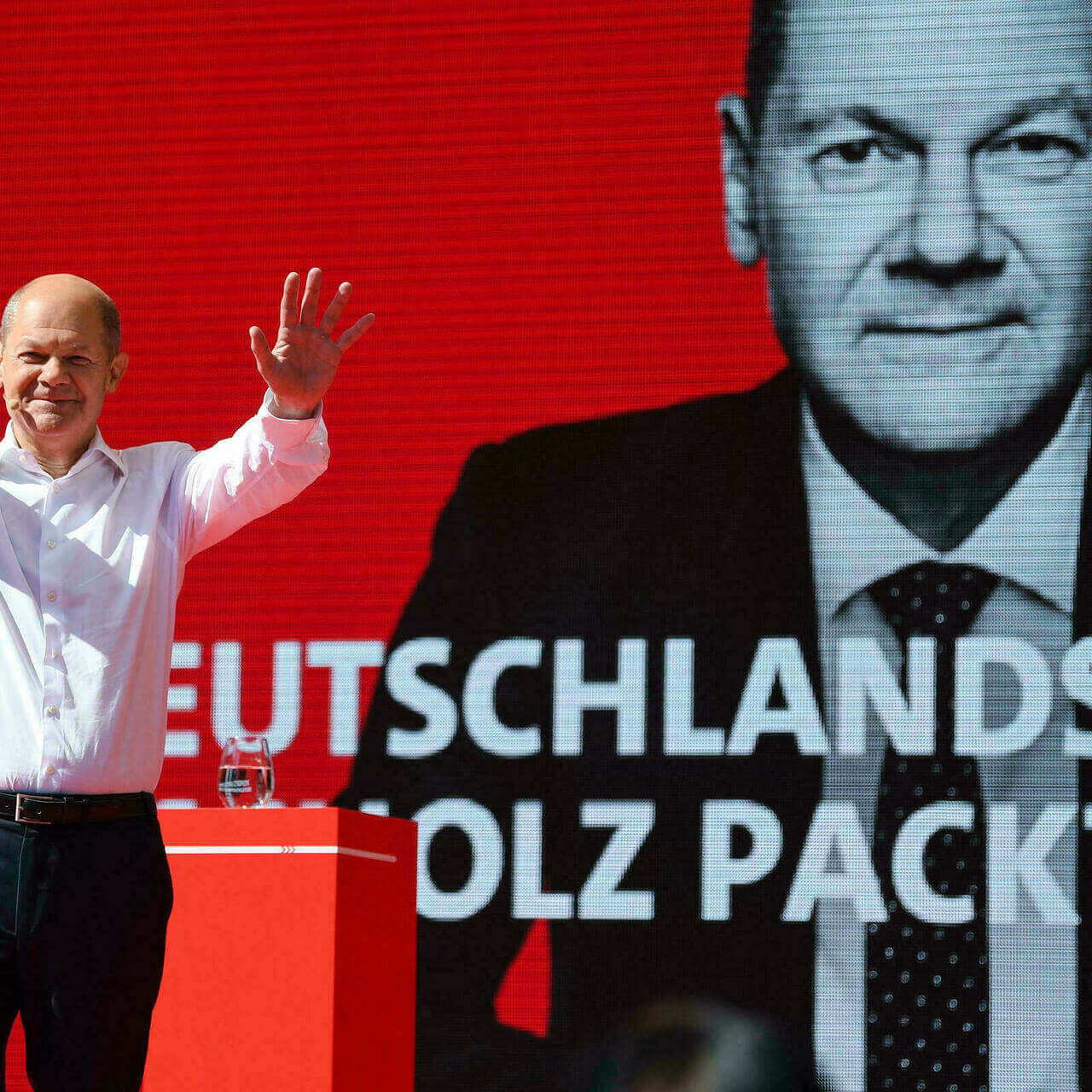Germany’s Social Democrats (SDP) won Sunday’s parliamentary elections by narrowly beating outgoing German Chancellor Angela Merkel’s centre-right Union bloc.
According to the official figures, the SPD, led by Olaf Scholz, secured 25.7% of votes in the national election, whereas Merkel’s Christian Democratic Union (CDU), led by Armin Laschet, won 18.9% of votes. In terms of seat distribution, the SPD won 206 seats compared to the CDU’s 151 from a total of 735 seats in the federal parliament, also known as the Bundestag. However, the SPD attained far fewer seats than the 398 required for a majority and will now engage in talks with other parties to form a coalition government.
Merkel will lead the country in a caretaker majority government until a power-sharing deal is struck and the coalition government is formed.
Scholz said, “The vote gave the party a very clear mandate to ensure now that we put together a good pragmatic government for Germany.” He hoped to strike a “traffic light” coalition with the Greens and liberal Free Democrats (FDP). The Greens secured 14.8% of votes, with 118 seats, while FDP, with 11.5% of votes, got 92 seats.
At the same time, CDU leader Laschet said they, too, would reach out to other parties for coalition talks. “Of course, this is a loss of votes that isn’t pretty,” he said, adding that “with Merkel departing after 16 years in power, no one had an incumbent bonus in this election.” “We will do everything we can to form a government under the Union’s leadership because Germany now needs a coalition for the future that modernises our country,” he stressed.
Both the SPD and the CDU will be scouting the same parties to form a coalition government. The Greens have already declared their preference for the Social Democrats, but have called a meeting on October 2 to formally decide which party they will engage in exploratory talks with. Meanwhile, the pro-business FDP prefers a coalition with the conservatives and the Greens but is also open to an alliance with the SPD and the Greens.
Another option is continuing with the “grand coalition” of the Social Democrats and the centre-right Union bloc. However, years of squabbling has left little hope for this alliance. Moreover, according to a YouGov poll, the majority of the voters prefer Scholz’s “light coalition,” and 43% of voters believe that Scholz should become Germany’s next chancellor.
Both parties remain hopeful of reaching a conclusion before Christmas. “Germany will take over the G7 presidency in 2022, which is why a new government must come very quickly,” Laschet noted.
All parties will hold their leadership meetings on Monday, while the SPD and the CDU plan to convene on Tuesday. The newly elected MPs from each party are expected to hold their first meeting next week. As per the rules, the newly elected parliament must have its inaugural session by October 26, no later than 30 days after the election.
German Election: Social Democrats Defeat Outgoing Merkel’s CDU
Germany’s Social Democrats led by Olaf Scholz attained the most votes and seats in 2021 federal elections, narrowly beating outgoing Angela Merkel’s centre-right Union bloc helmed by Armin Laschet.
September 27, 2021

SOURCE: FRANCE 24
